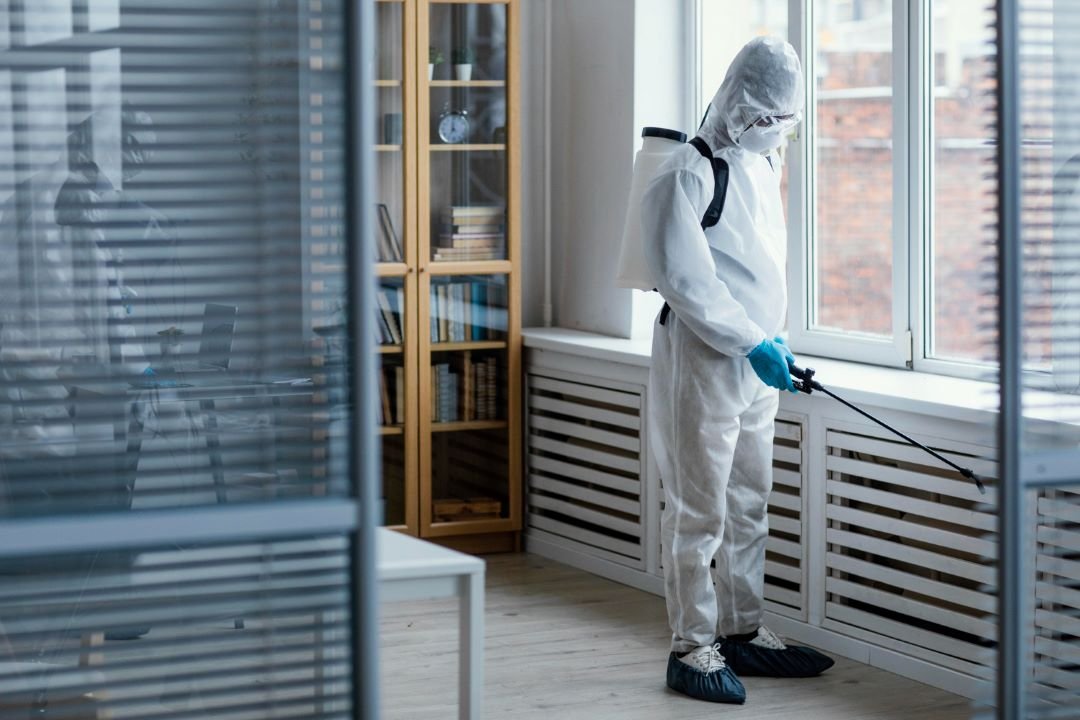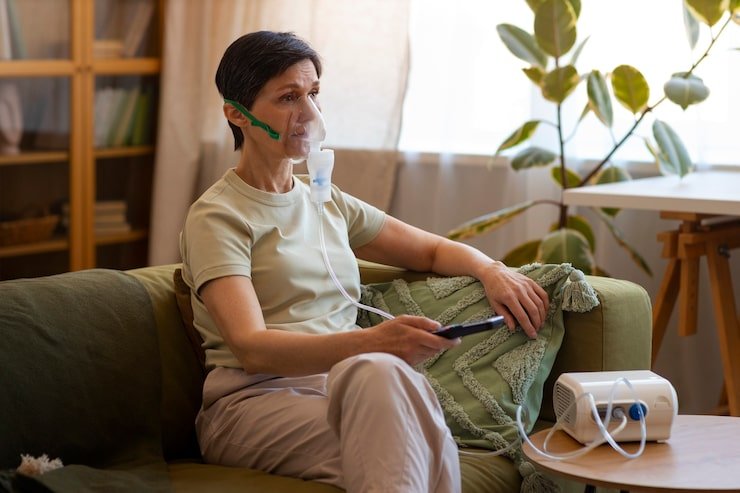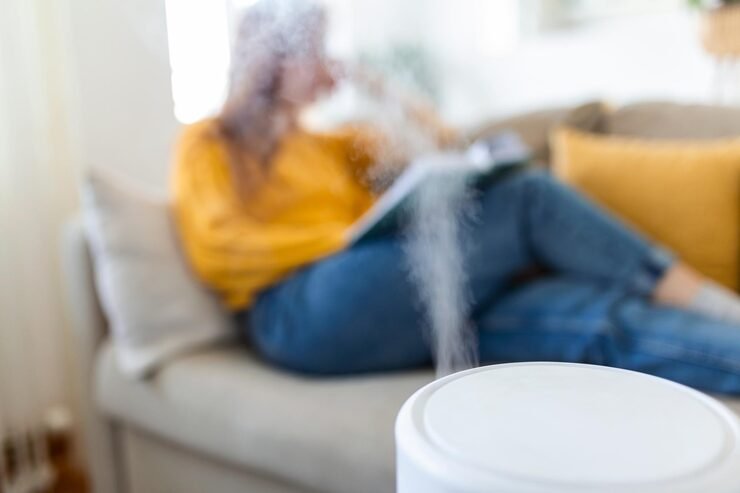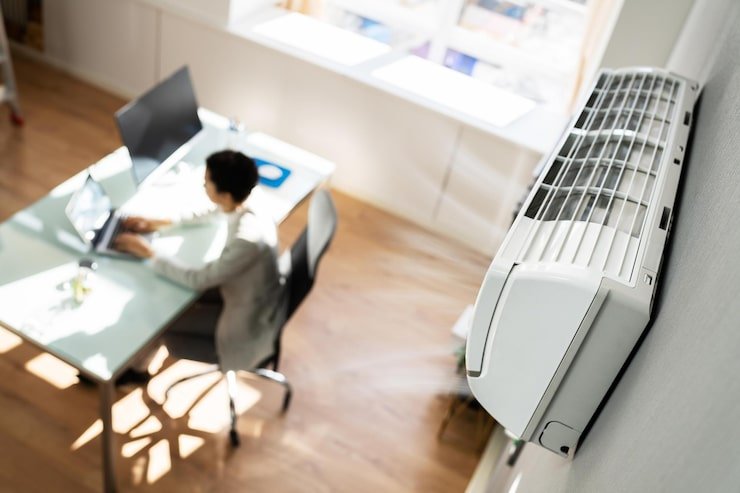Why Indoor Air Quality Testing Is Essential for Every Homeowner
- admin323029
- Blog

Indoor air can be two to five times more polluted than outdoor air, according to the EPA. Yet, most homeowners rarely consider what they’re breathing inside their own homes. Whether you’re living in Boston, Melrose, or anywhere across Massachusetts or New Hampshire, Air Quality Testing can uncover hidden pollutants that impact your health and home environment.
In this blog, we’ll explain why air quality testing is not just important—but essential. We’ll break down what the process involves, what contaminants to watch out for, and how testing gives you the power to improve your indoor environment.
What Is Air Quality Testing?
Air Quality Testing is a diagnostic process that checks for harmful pollutants and contaminants in your indoor air. This includes testing for:
-
Mold spores
-
Volatile Organic Compounds (VOCs)
-
Formaldehyde
-
Carbon monoxide
-
Radon
-
Dust, pollen, and other allergens
Professional services use specialized equipment to detect even trace amounts of these harmful substances. In Massachusetts and New Hampshire homes—especially older properties or those with poor ventilation—such testing can reveal serious issues before they affect your health.
Health Risks of Poor Indoor Air
Poor indoor air quality isn’t just a comfort issue—it’s a health hazard. Prolonged exposure to indoor pollutants can lead to:
-
Headaches, fatigue, and dizziness
-
Allergies, asthma, and respiratory infections
-
Long-term conditions like heart disease or lung cancer
Children, seniors, and those with compromised immune systems are especially vulnerable. If you’re a homeowner in New Hampshire towns like Nashua or Concord, or in Massachusetts cities like Lynn or Woburn, it’s critical to assess your air quality seasonally—especially during winter when homes are sealed tight.
Why Every Homeowner Should Prioritize Air Quality Testing
Whether you’ve just bought a home or lived in the same one for 20 years, air quality testing offers critical insights. Here’s why it should be on every homeowner’s checklist:
1. You Can’t See What You’re Breathing
Many harmful particles—like radon, carbon monoxide, and mold spores—are completely invisible. Without proper testing, there’s no way to detect them.
2. You Can Prevent Costly Repairs
Undetected moisture problems or mold growth behind walls can become expensive issues. Testing early helps catch problems before they escalate.
3. It Supports Home Resale Value
In competitive real estate markets across Massachusetts and New Hampshire, offering proof of a healthy indoor environment is a selling point.
4. Boosts Indoor Comfort
Cleaner air improves sleep, concentration, and general well-being—especially in homes with pets or heavy use of cleaning chemicals.
What Happens During a Professional Air Quality Test?
A certified inspector will evaluate several areas of your home, including basements, attics, and HVAC systems. The process often includes:
-
Air sampling (to detect particles, mold spores, VOCs)
-
Humidity and temperature checks
-
Surface sampling (in suspected mold areas)
-
Carbon monoxide and radon testing
After the assessment, a detailed report outlines findings and recommendations. In many cases, homeowners in areas like Cambridge or Salem can take simple actions—like improving ventilation or replacing filters—to see immediate benefits.
Indoor Air Pollutants You Should Be Concerned About
Air quality issues differ by home and location, but here are some common offenders:
Mold
Can grow behind walls or under flooring in damp areas. Homes in coastal areas of Massachusetts are especially susceptible.
VOCs
Emitted from furniture, paint, cleaning supplies, and building materials. VOC exposure is linked to headaches and respiratory issues.
Radon
A radioactive gas found in soil, common in New Hampshire basements. It’s the second leading cause of lung cancer in the U.S.
Allergens
Pet dander, pollen, and dust mites can reduce air quality and trigger asthma and allergy symptoms.
Air Quality Testing in Massachusetts and New Hampshire
Local climates, home styles, and age of construction all affect indoor air quality. For example:
-
In Boston, densely populated areas may bring in more pollutants through HVAC systems.
-
In Melrose, older homes may have hidden mold due to outdated insulation.
-
In Nashua, winter weather means sealed windows and recirculated indoor air for months at a time.
Getting air quality testing from a local expert ensures recommendations are specific to your region and home structure.
How to Improve Indoor Air After Testing
Once you’ve tested your air, take action based on the results. Solutions might include:
-
Using HEPA air purifiers (check out our air purifiers shop)
-
Sealing leaks and improving insulation
-
Replacing HVAC filters regularly
-
Removing mold or using dehumidifiers in damp areas
-
Choosing low-VOC products for cleaning and renovation
You may also benefit from ongoing monitoring if your home has high risk factors like a finished basement, indoor pets, or nearby construction.
The Bottom Line
Air quality testing isn’t just for people with health conditions—it’s for anyone who values a safe, comfortable home. Whether you’re in downtown Boston, the suburbs of Woburn, or the peaceful towns of New Hampshire, testing your indoor air gives you clarity, control, and peace of mind.
Ready to Breathe Easier?
At Elite Home & Mold Inspections, we help homeowners in Massachusetts and New Hampshire take charge of their indoor environment. From comprehensive air quality testing to mold inspections and top-tier air purification products, our goal is to protect your health—and your investment.
Schedule your Air Quality Test now and make your home a healthier place to live.
FAQs about Air Quality Testing
1. What is air quality testing, and how does it work?
Air quality testing measures the concentration of pollutants like mold, VOCs, and radon in your indoor air. Professionals use specialized equipment to collect air and surface samples and then analyze them in certified labs.
2. How often should I get air quality testing done in my home?
It’s recommended to test your air at least once every 2–3 years, or immediately if you notice symptoms like allergies, musty smells, or moisture buildup. In areas like Massachusetts and New Hampshire, testing is also ideal after a home renovation or mold issue.
3. What are the signs I need air quality testing?
If you’re experiencing frequent headaches, breathing issues, or fatigue at home—or if you see mold, smell strange odors, or feel humidity problems—it’s time for air quality testing.
4. Is DIY air testing reliable compared to professional services?
DIY kits offer basic results, but professional air quality testing is far more accurate. Experts use industrial-grade tools and interpret lab data to give actionable insights.
5. How much does air quality testing cost in Massachusetts or New Hampshire?
Prices vary depending on your home’s size and the type of tests needed. On average, testing ranges from $250 to $600. Contact us for a customized quote.
Are you worried about the cleanliness of your space?
Let us help you! Cleaning services are our specialty, and we offer a complete range of cleaning and maintenance services. Get a free estimate!




